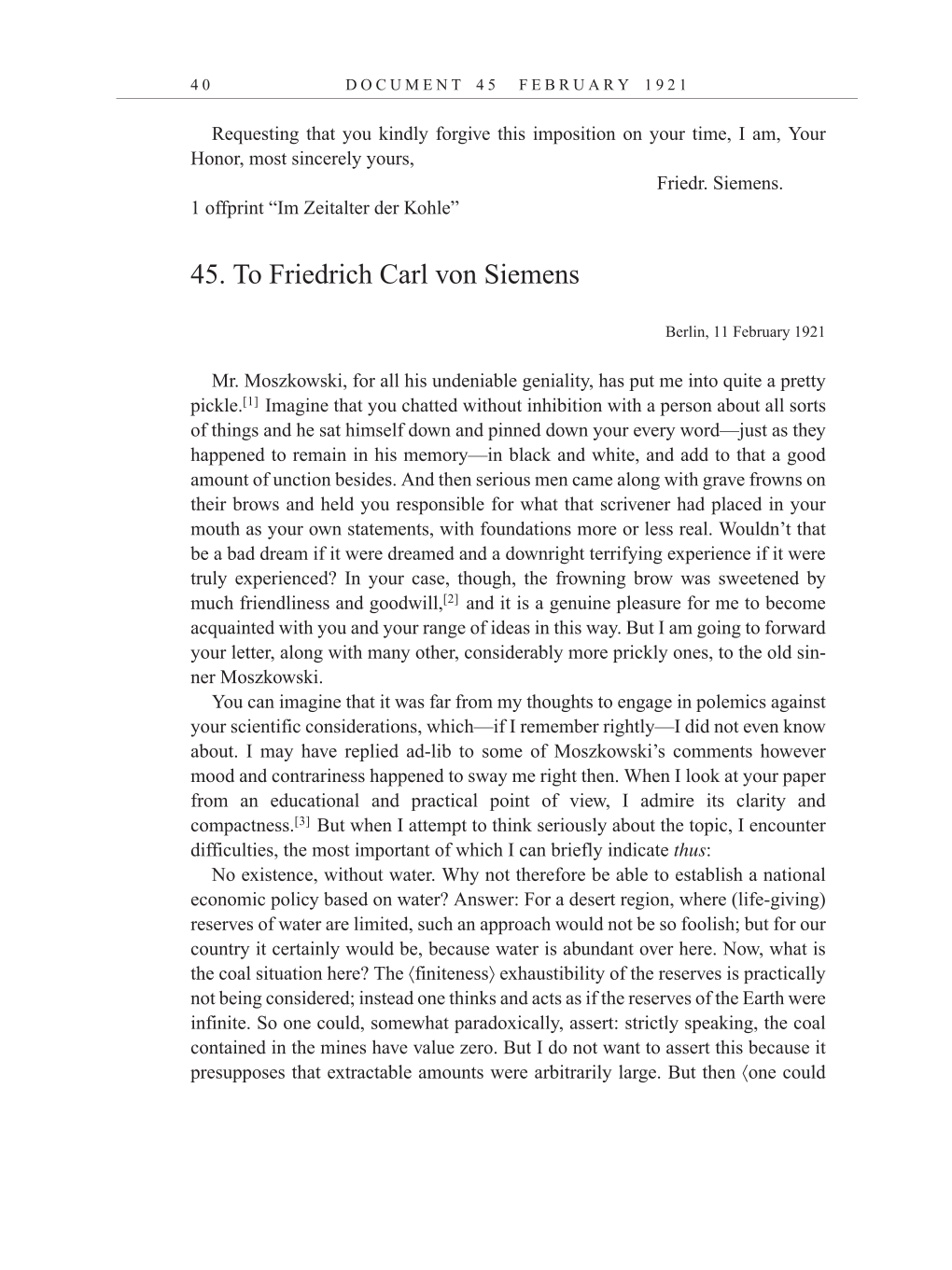4 0 D O C U M E N T 4 5 F E B R U A R Y 1 9 2 1
Requesting that you kindly forgive this imposition on your time, I am, Your
Honor, most sincerely yours,
Friedr. Siemens.
1 offprint “Im Zeitalter der Kohle”
45. To Friedrich Carl von Siemens
Berlin, 11 February 1921
Mr. Moszkowski, for all his undeniable geniality, has put me into quite a pretty
pickle.[1]
Imagine that you chatted without inhibition with a person about all sorts
of things and he sat himself down and pinned down your every word—just as they
happened to remain in his memory—in black and white, and add to that a good
amount of unction besides. And then serious men came along with grave frowns on
their brows and held you responsible for what that scrivener had placed in your
mouth as your own statements, with foundations more or less real. Wouldn’t that
be a bad dream if it were dreamed and a downright terrifying experience if it were
truly experienced? In your case, though, the frowning brow was sweetened by
much friendliness and
goodwill,[2]
and it is a genuine pleasure for me to become
acquainted with you and your range of ideas in this way. But I am going to forward
your letter, along with many other, considerably more prickly ones, to the old sin-
ner Moszkowski.
You can imagine that it was far from my thoughts to engage in polemics against
your scientific considerations, which—if I remember rightly—I did not even know
about. I may have replied ad-lib to some of Moszkowski’s comments however
mood and contrariness happened to sway me right then. When I look at your paper
from an educational and practical point of view, I admire its clarity and
compactness.[3]
But when I attempt to think seriously about the topic, I encounter
difficulties, the most important of which I can briefly indicate thus:
No existence, without water. Why not therefore be able to establish a national
economic policy based on water? Answer: For a desert region, where (life-giving)
reserves of water are limited, such an approach would not be so foolish; but for our
country it certainly would be, because water is abundant over here. Now, what is
the coal situation here? The finiteness exhaustibility of the reserves is practically
not being considered; instead one thinks and acts as if the reserves of the Earth were
infinite. So one could, somewhat paradoxically, assert: strictly speaking, the coal
contained in the mines have value zero. But I do not want to assert this because it
presupposes that extractable amounts were arbitrarily large. But then one could
